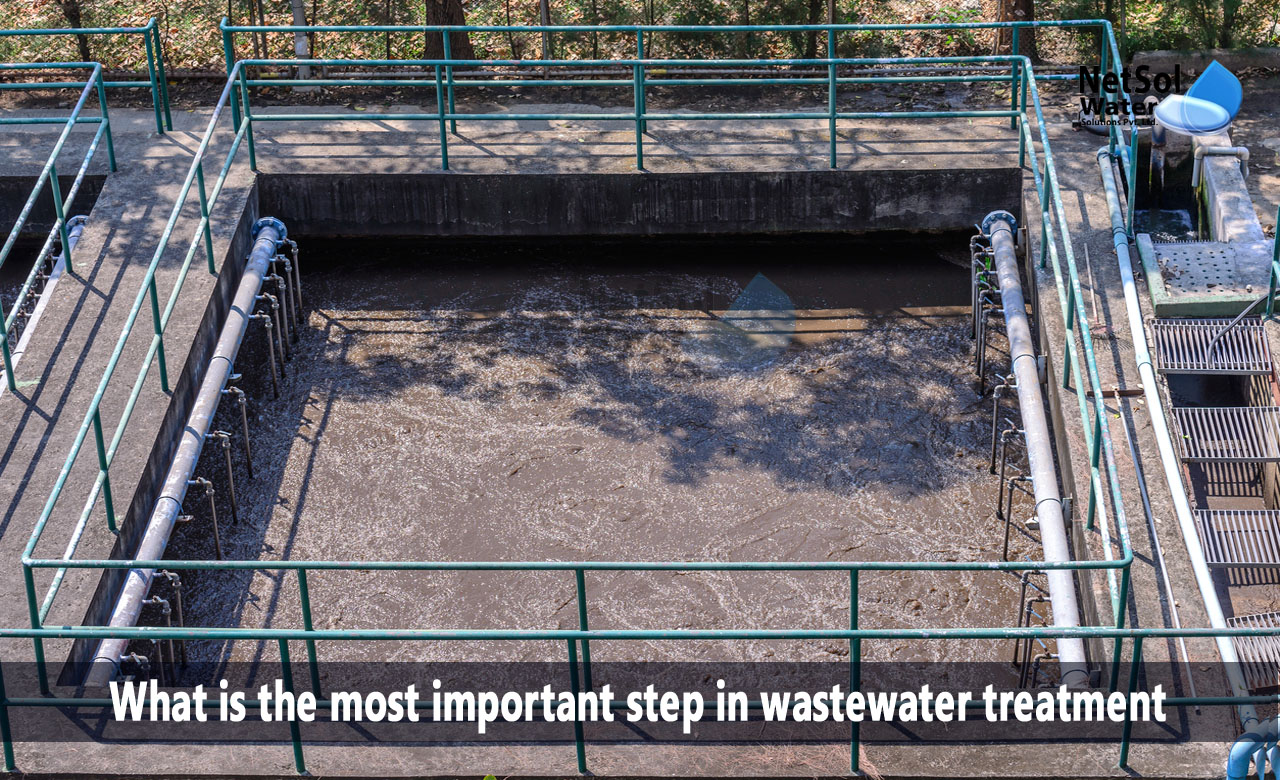To ensure that people treat the land with respect, wastewater treatment is a crucial component. Because, various chemicals are used in the treatment process, it's crucial to treat wastewater properly not just to protect the environment, but also to protect your facility's staff and users.
The removal of oil, dirt, gravel, and other floatable waste during primary treatment, is followed by the use of biological processes during secondary treatment, to remove even more suspended particles and pollutants.
What is the most important step in wastewater treatment?
Secondary treatment: The most important step in wastewater treatment
Secondary treatment is the process of removing biodegradable organic compounds, in solution or suspension and suspended particles. In the context of conventional secondary treatment, disinfection is typically incorporated. Biological nutrient removal is viewed as tertiary treatment by certain sanitary engineers, while secondary treatment by others.
After this kind of treatment, the effluent may be referred to as secondary-treated wastewater.
The goal of secondary treatment
In a sewage treatment facility, the objective is to reach a certain level of effluent quality that is suitable for disposal or reusing. In secondary treatment, biological processes are used to remove dissolved and suspended organic contaminants, which is measured as the biochemical oxygen demand (BOD).
Types of processes for secondary treatment
Systems for secondary treatment are divided into aerobic vs anaerobic, fixed-film or suspended-growth systems.
Anaerobic Treatment
The up-flow anaerobic sludge blanket reactor is an anaerobic secondary treatment system. Depending on the treatment technology, microorganisms carry out these processes in a controlled anaerobic or aerobic manner. In addition to being often used in the treatment of sewage, secondary treatment is also appropriate for a variety of agricultural and industrial wastewaters.
Fixed-film treatment filter beds
· Trickling filter beds are used in older facilities and those that receive variable loadings. In these beds, coke (carbonized coal), limestone chips, or specially made plastic media are used as a surface, on which the settled sewage liquor is spread out.
· Rotating biological contactors (RBCs): After primary treatment, a rotating biological contactor (RBC) is used to treat wastewater in a secondary manner. Before releasing the cleaned wastewater to the environment, which is frequently a body of water, the RBC process exposes wastewater to a biological film to remove toxins (river, lake or ocean).
· A construction wetland is a wetland that has been created by a human being, and is used to treat sewage, greywater, stormwater runoff, or industrial wastewater. It might also be used to restore land after mining or as a step towards, making up for the loss of natural areas brought on by land development.
Suspended growth systems
· Activated sludge: A common secondary treatment method for suspended growth is activated sludge. Dissolved oxygen is used in activated sludge facilities, to encourage the production of biological floc, which considerably reduces organic waste.
· Sequencing batch reactors: A system that combines secondary treatment and settling is a cyclic activated sludge or sequencing batch reactor (SBR). Raw incoming sewage is frequently mixed with activated sludge, before being blended and aerated.
· Packaging plant: There are numerous varieties of package units, many of which cater to industrial or small-town settings. To treat incoming sewage, these facilities may use hybrid treatment methods such as aerobic sludge.
· Membrane bioreactors: A liquid-solid phase separation membrane is used in membrane bioreactors, which are activated sludge systems. The membrane component uses low pressure microfiltration or ultrafiltration membranes, to eliminate the need for a secondary clarifier or filtration.
Since, CAS systems are constrained by sludge settling, the approach enables bioreactors to function at much higher, mixed liquor suspended solids (MLSS) concentrations than CAS systems.
What do we offer?
Since, wastewater composition varies, specialized wastewater management is required. Every project is different, and our experts at Netsol Water will assist you in selecting the most effective technique, for treating water and wastewater in the best way.
Netsol Water is Greater Noida-based leading water & wastewater treatment plant manufacturer. We are industry's most demanding company based on client review and work quality. We are known as best commercial RO plant manufacturers, industrial RO plant manufacturer, sewage treatment plant manufacturer, Water Softener Plant Manufacturers and effluent treatment plant manufacturers. Apart from this 24x7 customer support is our USP. Call on +91-9650608473, or write us at enquiry@netsolwater.com for any support, inquiry or product-purchase related query.



